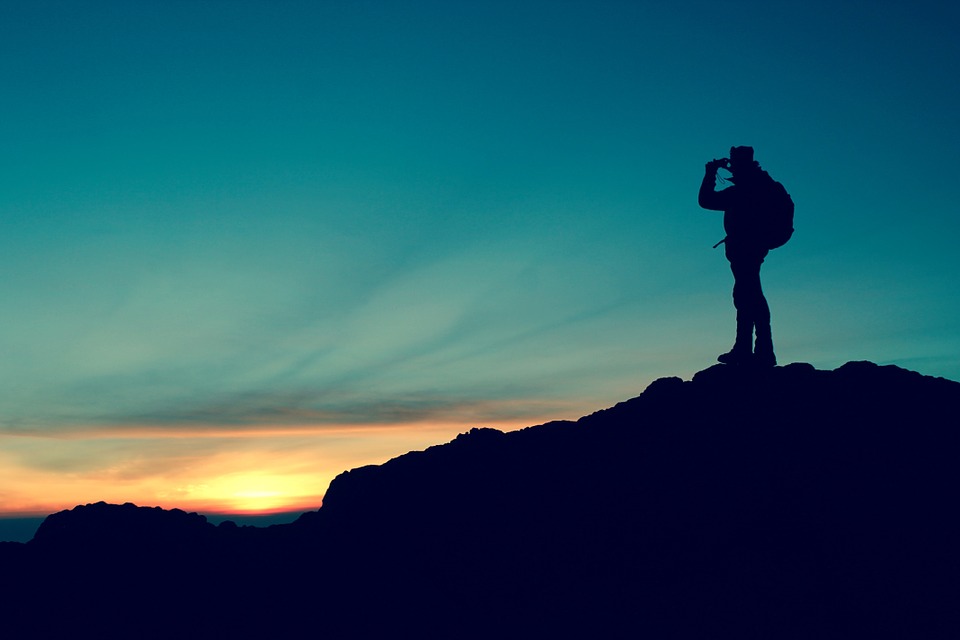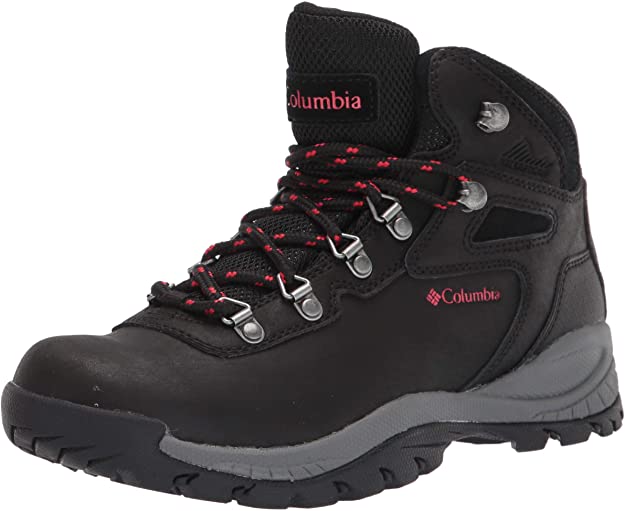Hiking
Hiking is not just for the outdoorsy types. It’s a great way to get fit, explore new places and spend time with friends. And it could be your chance to see incredible sights you might never encounter otherwise! There are so many things to love about hiking, but here are some of the most important ones.
So what is hiking, exactly?

Hiking is the preferred term for what is more commonly called “backpacking”. The idea behind this outdoor activity is to hike through the wilderness with equipment on your back, usually spending one or several nights outside.
This can be anything from a few hours spent in an urban park to multi-day expeditions climbing high mountains. It’s not just about long treks either – there are short hikes that are great ways to get some exercise without committing too much time or energy to it.
So even if you have just an afternoon free, you could go for a nice walk around town and enjoy some fresh air!
The most important part of any good hike is preparation. Before setting out, you should:
- Make sure that everyone in your group is physically and mentally prepared. Remember to dress appropriately for the weather conditions, and bring lots of water with you!
- Have a plan.
- Let someone know where you’re going before you leave so they can raise the alarm if necessary. Consider taking a cell phone or GPS device with you if there’s no chance of signal where you’re going. Don’t forget to try and get back before nightfall though – it’s dangerous to be out in darkness on trails like these!
What are the benefits of hiking?
There are many reasons to love hiking, but here are the most important ones:
Hiking keeps you healthy.
It’s a great way to discover natural landscapes that you wouldn’t normally have access to. Not only are they beautiful, but there are often lots of interesting things to learn about them! Many nature walks include an explanation of what you can find in certain environments.
You get to spend time outside! A lot of people enjoy hiking because it allows them some quality fresh-air time without needing to be far from civilization. If you live in a big city, this might be your only chance for peace and quiet.
It’s a great way to meet new people. There are often hiking groups where you can go with friends, but even if not, most trails have other hikers on them from time to time! This is a great way to strike up conversations and make new friends – or just say hello for the sake of it with friendly strangers.
You get a real sense of accomplishment when you finish your hike and reach your destination! It might seem like an easy thing to accomplish, but many first-timers underestimate what they’re capable of and find themselves surprised by how much energy their body uses during the activity. Going hiking regularly will help build your endurance and allow you to do more and more each time.
Hiking allows you to learn something new about yourself. You might discover that you’re fitter than you thought, or find out you can really handle challenging terrain.
You get to spend time in nature which everyone needs for their mental health! Nature has a calming effect on us and can help fight stress, depression, anxiety and even symptoms of ADHD. It gives us the chance to relax and disconnect from our everyday lives for a while (at least mentally). This is especially important nowadays when many of us spend all day glued to screens like TVs, laptops or phones! We need to take some time for ourselves away from technology, and hiking is the perfect way to do it.
Hiking can be done with friends or family members. This activity doesn’t only have physical benefits – spending time together in nature has been shown to create a closer bond between loved ones! It’s a great topic of conversation that will allow you to talk about things that aren’t normally discussed on a day-to-day basis. So next time your loved ones come over, why not suggest going out for a hike instead of staying cooped up inside?
So if you want some fresh air and some exercise, head out for a good old hike ! You never know – you might find yourself enjoying this new hobby more than you thought.
How to get started with hiking?
Before you go hiking, there are some things you need to consider. For example, what’s the weather like? What should I wear? How do I choose a route?
The ideal day for hiking is clear and sunny with little to no wind. Wear comfortable walking shoes that provide enough ankle support – this will be important if you’re planning on tackling more difficult trails with lots of rocks and steep inclines.
Prepare the right clothing for your hike. Several layers are often better than one thick jumper because you’ll be able to regulate your body temperature in this way even in changeable weather conditions! Also bring sunscreen, sunglasses, a hat or cap that covers your neck, water and some snacks. Don’t forget to take out travel insurance before you go just in case anything does happen – it’s better to be safe than sorry!
Choosing a route can seem intimidating when you don’t have prior experience but there are several factors you can consider which will help narrow down your options depending on what you want from your hike. What is the length of the route? How difficult is it? Is there anything I should watch out for?
You want to pick an easy, well-marked hike that’ll take less than 3 hours. The trail should be paved or mostly flat with clearly visible signs along the way (for example, little wooden posts pointing you in one direction). You’ll also want trails without too much undergrowth because long grass can make hiking awkward and uncomfortable – you don’t want to get caught up in thorny bushes! This will help prevent blisters on your feet as well.
There are several safety factors you need to consider when choosing a route. First of all, you must only hike in designated trails – not off-road where no one else has been before. You should either go with another person or in a group of at least three.
Finally, you must never hike alone – this is extremely dangerous and if anything happens to you, it’ll be difficult for help to find its way to you!
Essential Accessories for Hiking
Hiking Boots
Good hiking boots are lightweight, comfortable, and designed to support your ankles. High-top boots provide ankle support (but only if they fit properly). The right socks make all the difference in comfort!
Columbia Women’s Newton Ridge Plus Hiking Boot

Columbia’s Women’s Newton Ridge Plus Waterproof Hiking Boot features our lightweight, durable midsole for long-lasting comfort, superior cushioning, and high energy return as well as an advanced traction rubber sole for slip-free movement on rough ground.
The bootie construction with a waterproof full-grain leather upper means that you don’t have to sacrifice functionality when it comes to this tough customer. Treacherous days out on the trail are comfortable and worry-free thanks to Columbia’s handy features including a durable mesh tongue for breathability and a supportive EVA molded footbed.
Water Bottle/Camelback
A water bottle provides quick hydration during short breaks on a trail; for longer hikes, consider using a hydration backpack instead. Hikers can lose up to 1 liter of sweat per mile! Trailside streams may look like viable water sources, but be sure to filter them before drinking.
Navigation
Hiking without navigational tools is risky; hikers should know how to find their way out of any situation without help from technology or other people. Hikers should know how to read a map, use a compass, and find their location on GPS. Perhaps the best navigational tool is your brain! Always have a backup plan in case you get lost or injured so you can survive until rescued.
GPS
While nature provides a free GPS service in the form of landmarks and terrain, hikers need an actual device to track their progress accurately. Make sure there’s room on your phone for maps and apps that will help you navigate safely.
Food & Snacks
You’ll need extra energy while hiking, but make sure it won’t add too much weight to your pack! Some nutritionists recommend eating 30-60 grams of carbohydrate every 2 hours during activity; look for items that are low in fat and sugar, but high in fiber, protein, or water.
Backpack
A backpack with enough space for food, water, clothes, and other essentials will keep your hands free so you can enjoy the scenery instead of worrying about how much stuff you’ve got weighing on your back.
Poles
Hiking poles help distribute weight better than a pack alone and give hikers more stability on uneven ground or difficult terrains like ice or snow.
Garbage Bag
In addition to being a waterproof layer of protection from rain or puddles on the trail, a garbage bag can also serve as a pack cover, tarp for shade, ground cloth if you need to sit on something wet, improvised first-aid kit, or sling/splint for an injury – it’s more durable than fabric alone!
And most importantly – use your trash bag to pack out all your dirty clothes at the end of a hike. What would you add?
Sunscreen
Sunscreen protects your skin from sunburns which can happen even if it is cloudy outside. Sunscreen should be applied before hiking as well as after to every exposed area of the skin.
There are different kinds of sunscreen depending on how long you will be out in the sun for example waterproof sunscreen is needed when playing sports outdoors like swimming or surfing since water reduces the effectiveness of sunscreen.
Insect repellents
Insect repellents keep bugs away so that hikers don’t get bites that could give them an infection from being outside.
Rain gear
Rain gear includes a rain jacket and pants (or shorts if it is warm out) and helps hikers stay dry in the case of getting caught in the rain since it gets wet when you sweat or when you stand in puddles or streams on the trail. It also reduces the risk of getting hypothermia if it is cold and windy out.
First aid kit
First aid kit is vital because anything could happen while hiking such as spraining an ankle, slipping, falling down a steep hill which would cause bruising or scrapes that need to be taken care of ASAP with proper first-aid supplies like bandages, antiseptic ointment, butterfly bandages, etc.
Flashlights and lighters
Flashlights and lighters may be needed for safety reasons such as if you are going to be hiking at night or need a flashlight at the bottom of a ravine that is difficult to climb down. A lighter is also needed in case your gear gets wet and it needs to be dried out so fire with solid fuel tablets can help dry things out.
Survival toolkits
Survival toolkits can come in handy if hikers get lost because they need something for cutting, protection, starting fires (see above), light, etc. They should also include water purification tablets which can remove parasites from drinking water that may cause serious health problems like giardiasis.
Conclusion
Hiking is a fun activity that allows you to discover new things about yourself and can be done with friends and family members. Anyone who wants fresh air and exercise should consider hiking as their hobby! Getting started can seem intimidating but there are several factors that will help narrow down your options depending on what you want from the experience (e.g., length, difficulty level).